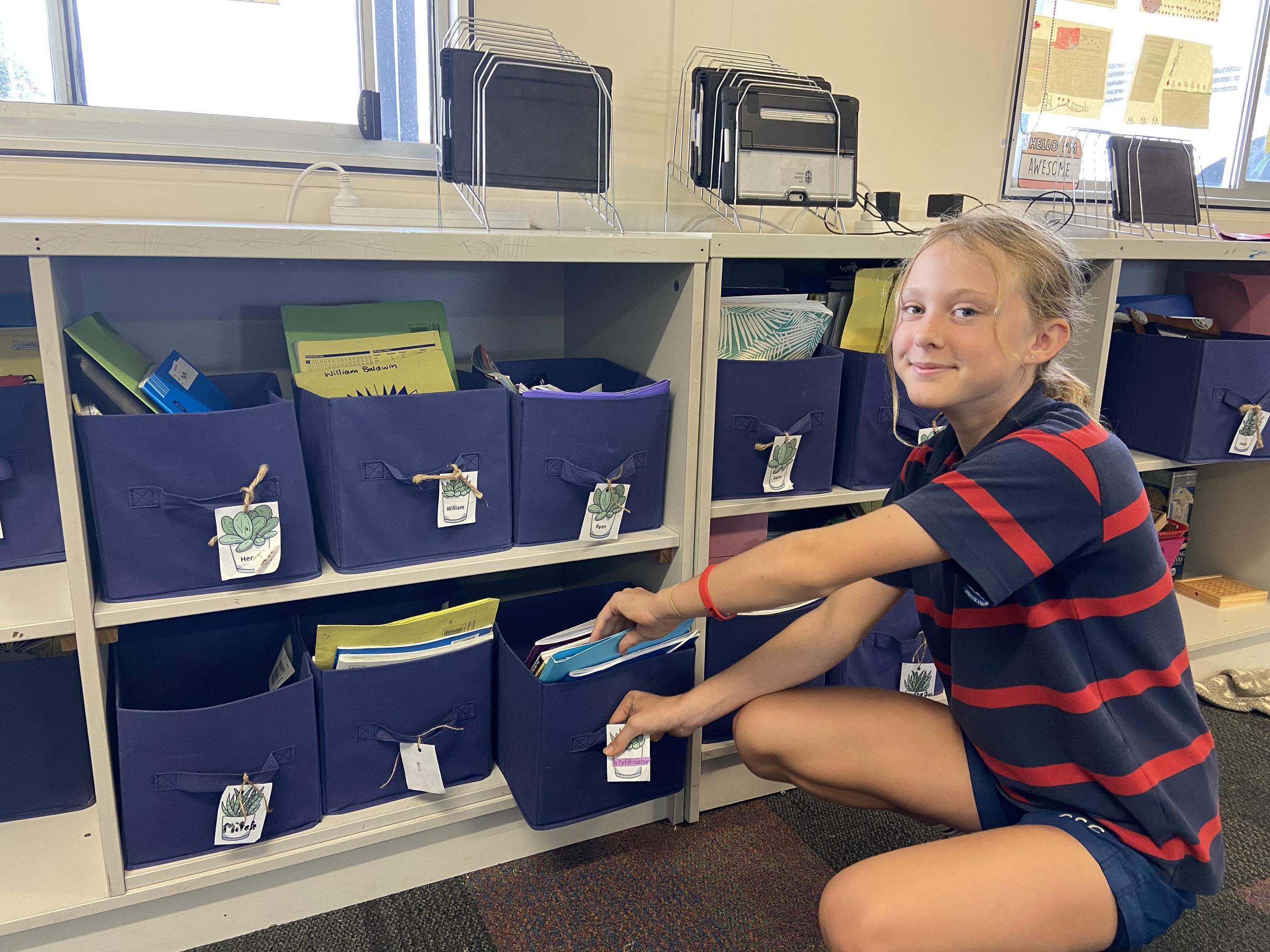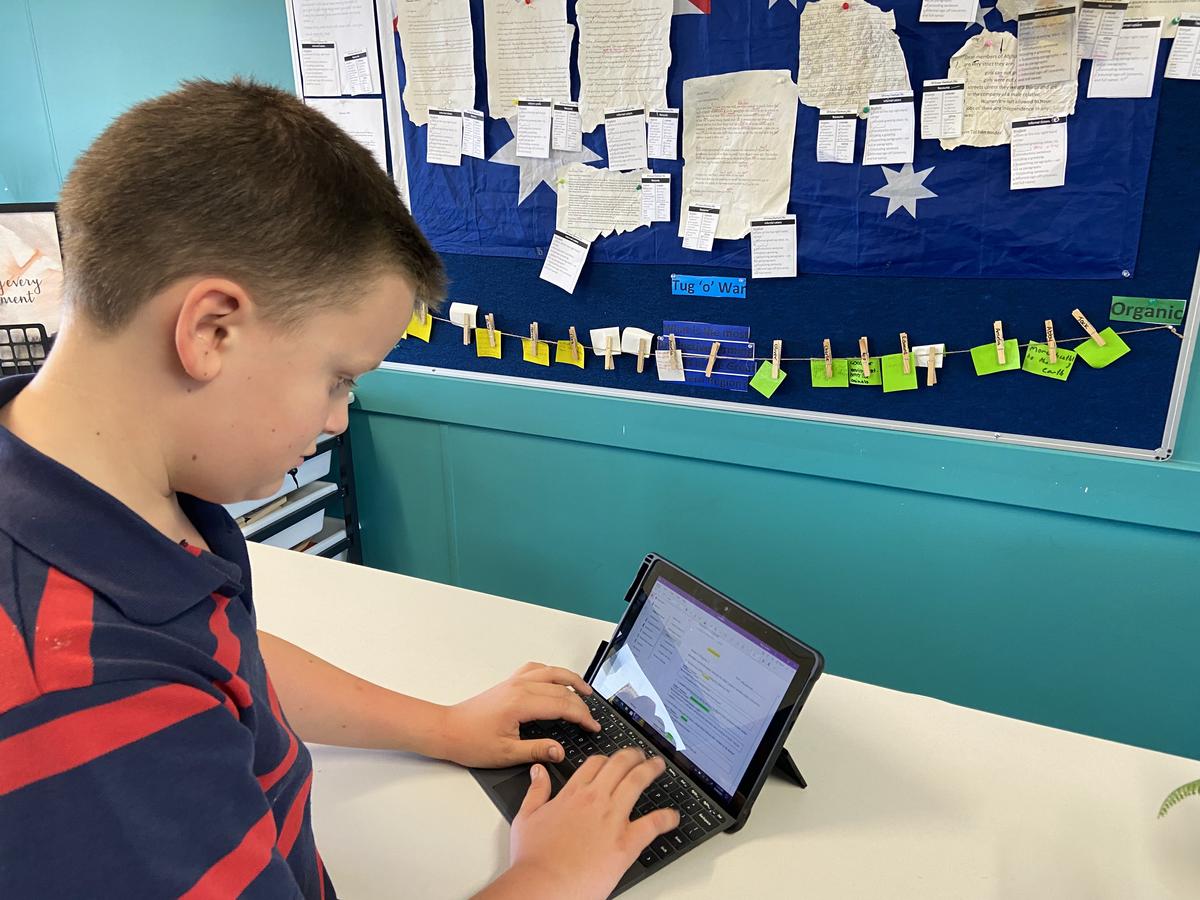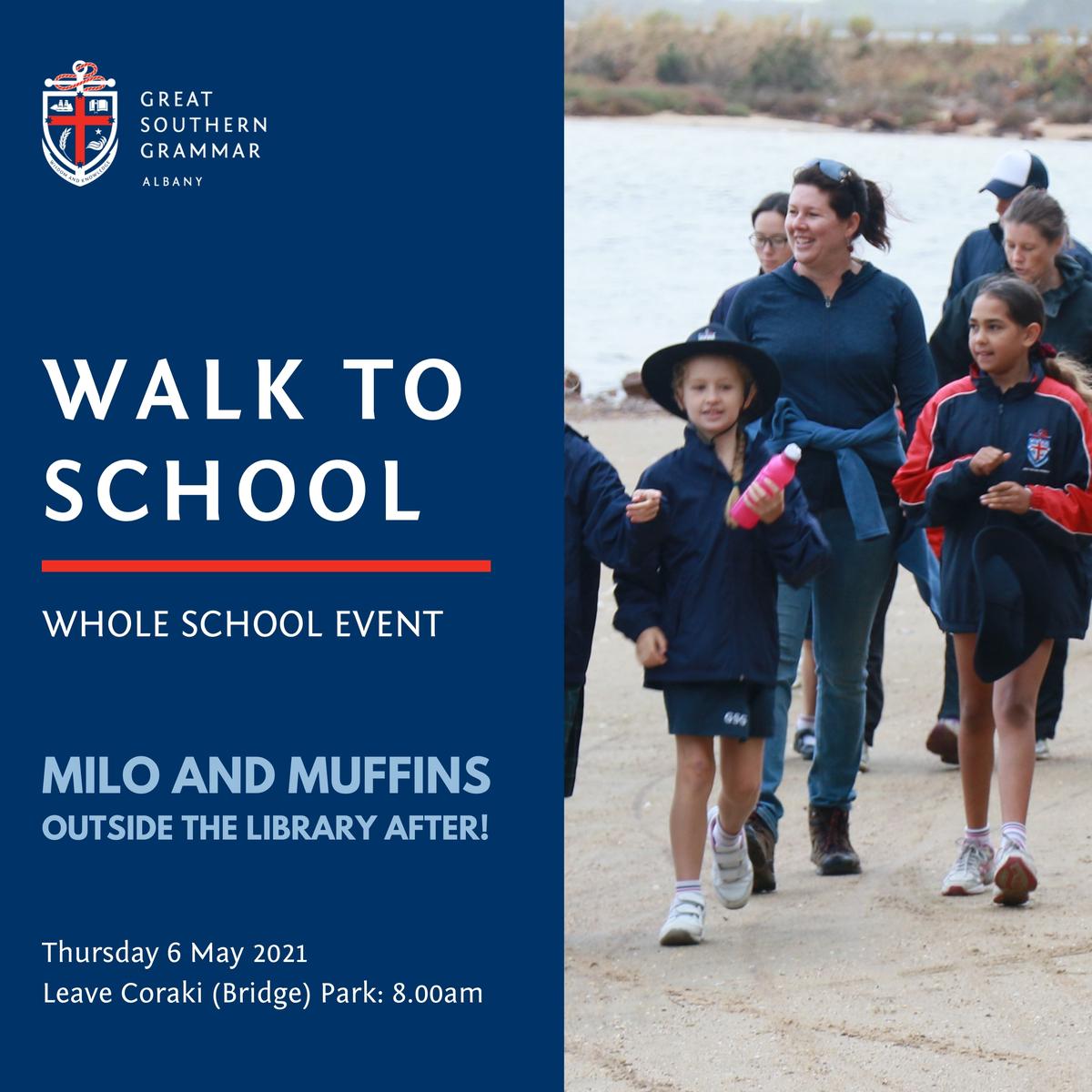Junior School

From the Head of Junior School
This week we’re profiling the learner attribute of being ‘organised’.
“Being organised, or getting organised” is said so often in our lives that it's easy to gloss over it as just something people say to themselves and/or others. Yet all of us would probably admit there is tremendous value in being organised. In fact, I can’t recall a person ever saying to me that they thoroughly enjoyed working with someone who was delightfully disorganised!
I believe organisation is a learnable skill, not some mystical power possessed by a few extraordinary people.
At a school level, I really enjoy seeing how organisation skills are developed by students across age groups. Our very youngest students begin by sorting out their own bag areas and putting class materials away in containers or shelves. As they progress there are class tasks students take responsibility for like ensuring that workbooks are distributed and stored effectively, IT devices are charged for the next days use and notes in the diary remind us to attend training, catch a bus, finish homework etc… Moving into upper Junior School year levels, students become proficient using on-line organisational tools to keep track of lesson content and submit work to a timeframe. All these ages and stages have purpose for their organisational development.
Ultimately, we want to enable our young people to utilise the environment and resources around them to support their learning. Being able to access materials, check messages and updates, work both independently and collaboratively, relies on organisational skills to navigate these aspects of school life with confidence.
There is a student wellbeing element to consider also. I often read and hear across a variety of media channels nationally that students experience stress and anxiety from their studies at all levels of school but particularly through the later stages of Senior School. Whilst the topic is more nuanced than one aspect alone, I feel confident in saying that organisation skills would support the study process and reduce, in part, the pressures that some students can feel, in conjunction with other strategies like maintaining physical wellbeing and social supports for example. These are skills for life of course, well beyond Primary and Secondary schooling years into Tertiary education and professional lives, and consistently throughout our personal lives too. Developing organisational skills that support study and wellbeing routines can be developed from an early age, and done in a positive and affirming way that builds self-confidence.
If this is an area you would like to actively promote from home with your child/ren, a good starting point is to simply raise the topic at home for discussion, see what your children already know about organisation and how they apply these skills in different areas of their life. Perhaps then explore further yourselves, or request a conversation with your child's classroom teacher if you would like specific guidance and resources around age appropriate organisational skills they can focus on.
This week class 6F has prepared an assembly item profiling the learner attribute of organisation. I’ve included below some student reflections on how they apply organisation skills to support their learning.
Riley from Year 6F
“In 6F we are very busy, so it is very important to have organisation. We use OneNote as a digital file for all our work and class notes. Every day, especially if you are away, you check on OneNote for what you are missing out on and need to catch up on. In Year Six you get the special privilege to bringing a laptop to and from school so we can continue using OneNote for homework that the class teachers check. Every day we bring our laptops fully charged and if they are not charged or are not getting used they have to get placed in the holders and on charge so they are ready for us to use when we need them."
Elly from 6F
"In 6F we have been finding ways to improve our organization. Instead of desk trays we use boxes in shelves. By using boxes it is easier and quicker to find our stationery and books. Another way we are organised in 6F is we have “the doorway rule”, the doorway rule is when at the start of the morning, recess and lunch before we step through the doorway, we have to be ready with materials and our uniform is neat. Like tucked in shirts, straighten tie and check our skirts. We also have changed our seating arrangements, instead of leaving our books on the desks to go to break we pack it up and put it away. When we come back from the break, we get our things ready for the next lesson and then we choose our own seat. And that’s just a few things we do to stay organised in 6F."
I better go and get my week ahead organised….
With warm regards,
Mr Ken Raven | Head of Junior School
Coming up next week
Thursday 6 May
- Walk to School Day – Start from Coraki (Bridge) Park at 7:45am
- ECC Mothers' Day Morning, 9:00am
Friday 7 May
- Junior School Mothers Day Stall, open to students from Pre-Primary to Year Six, gifts priced at $5


